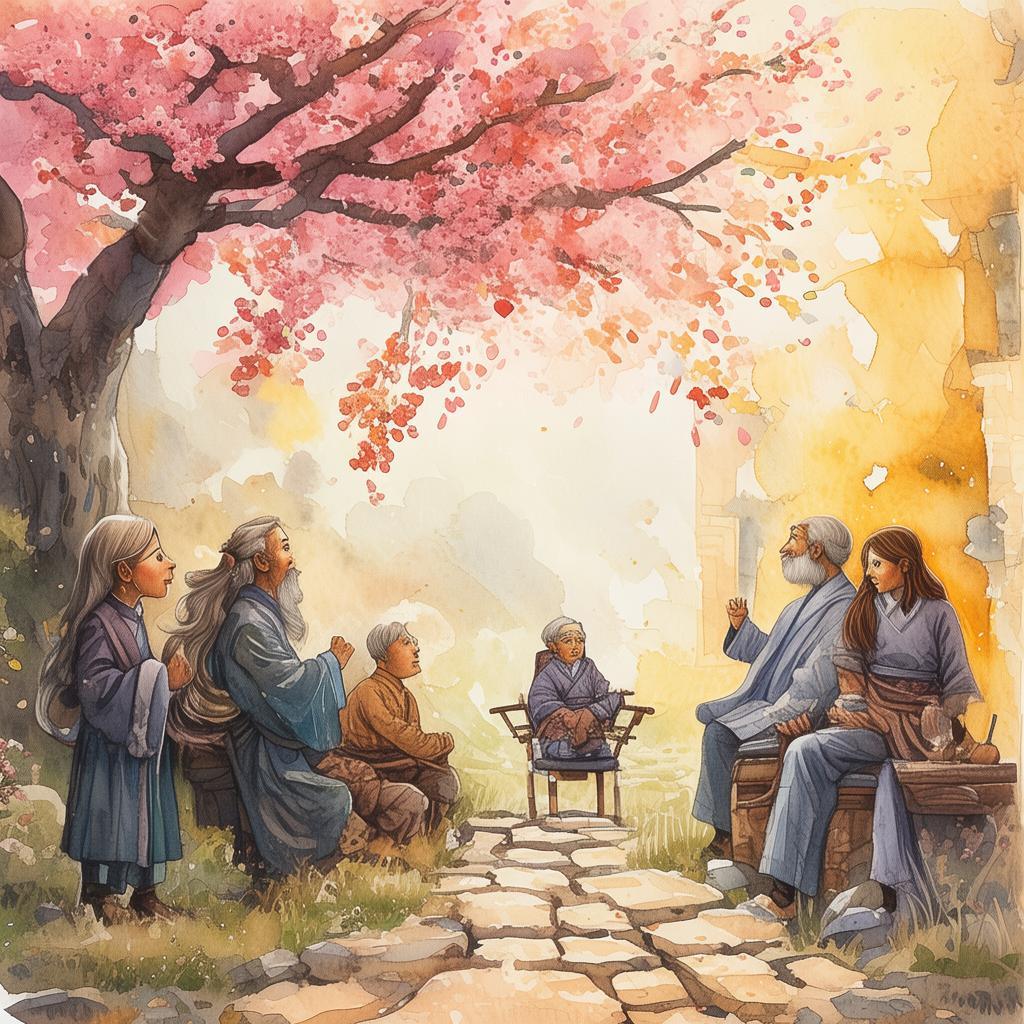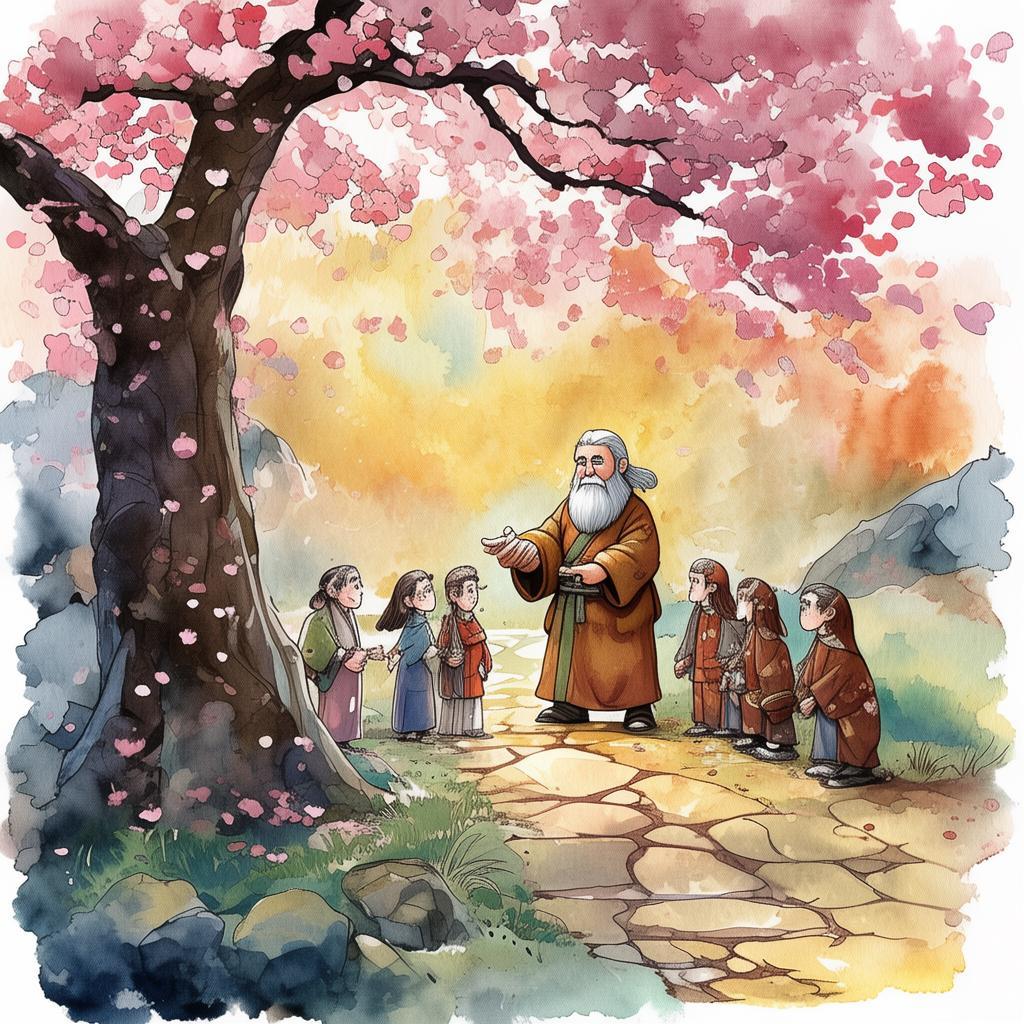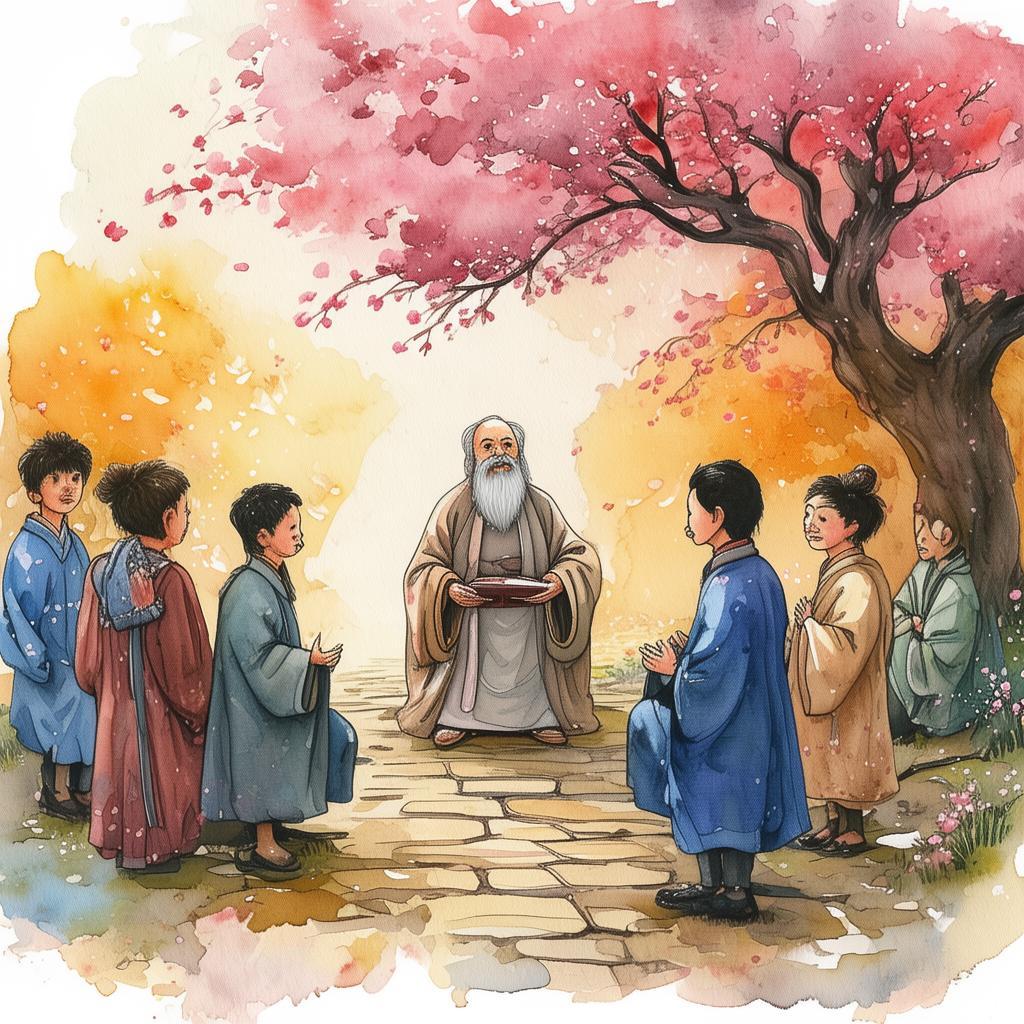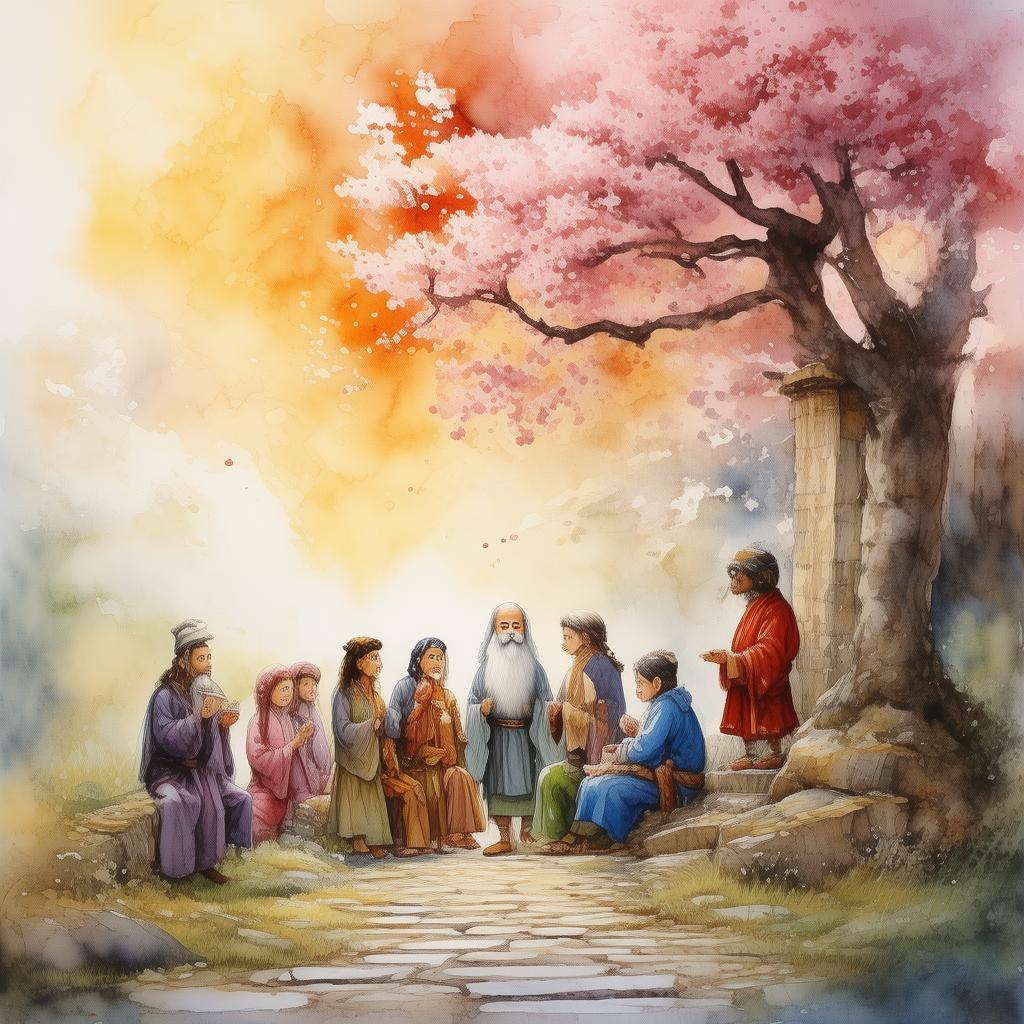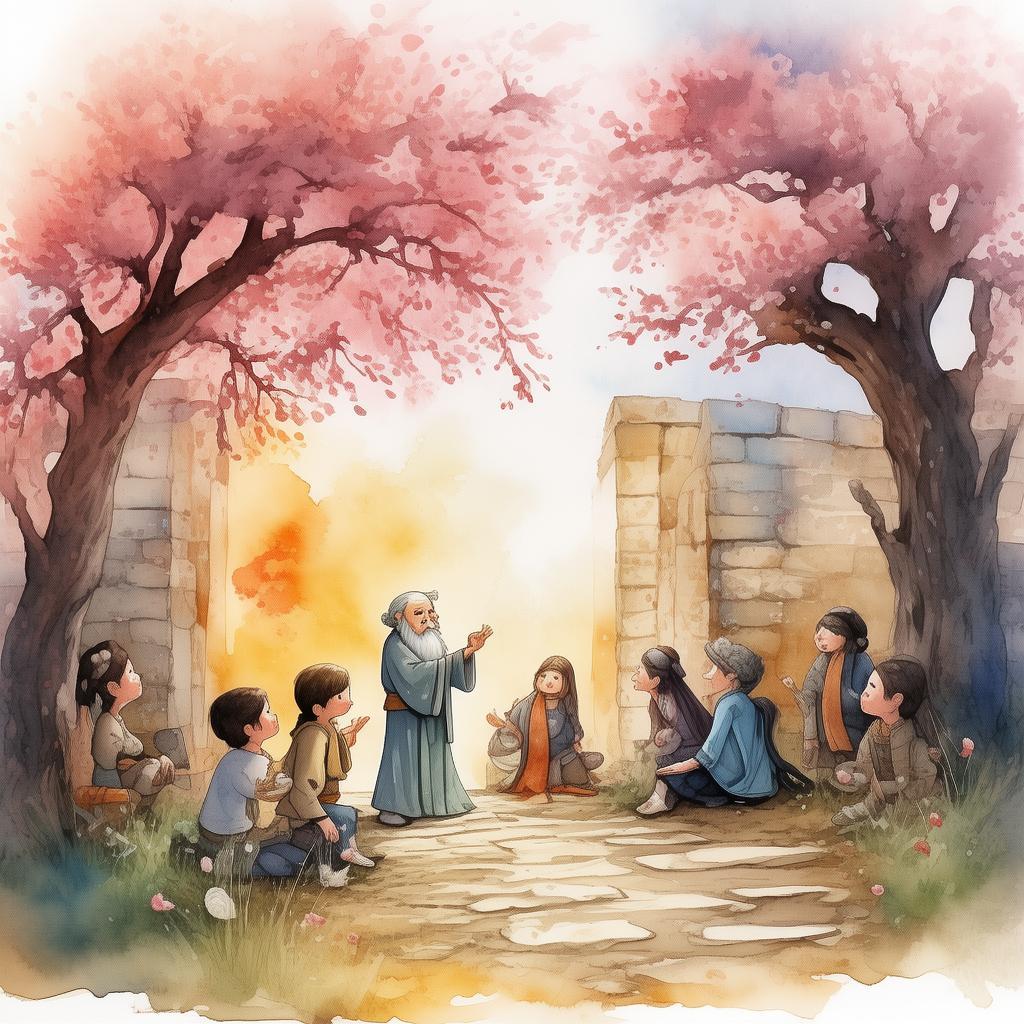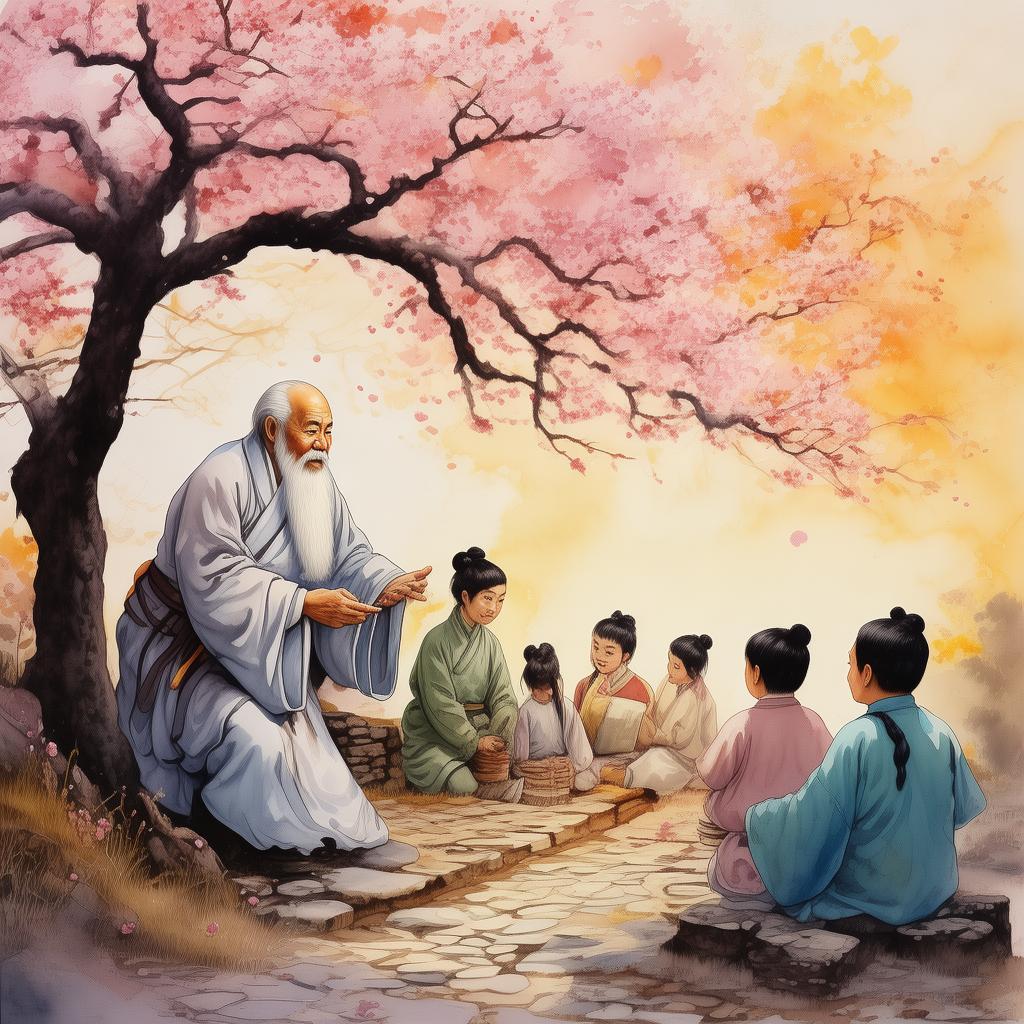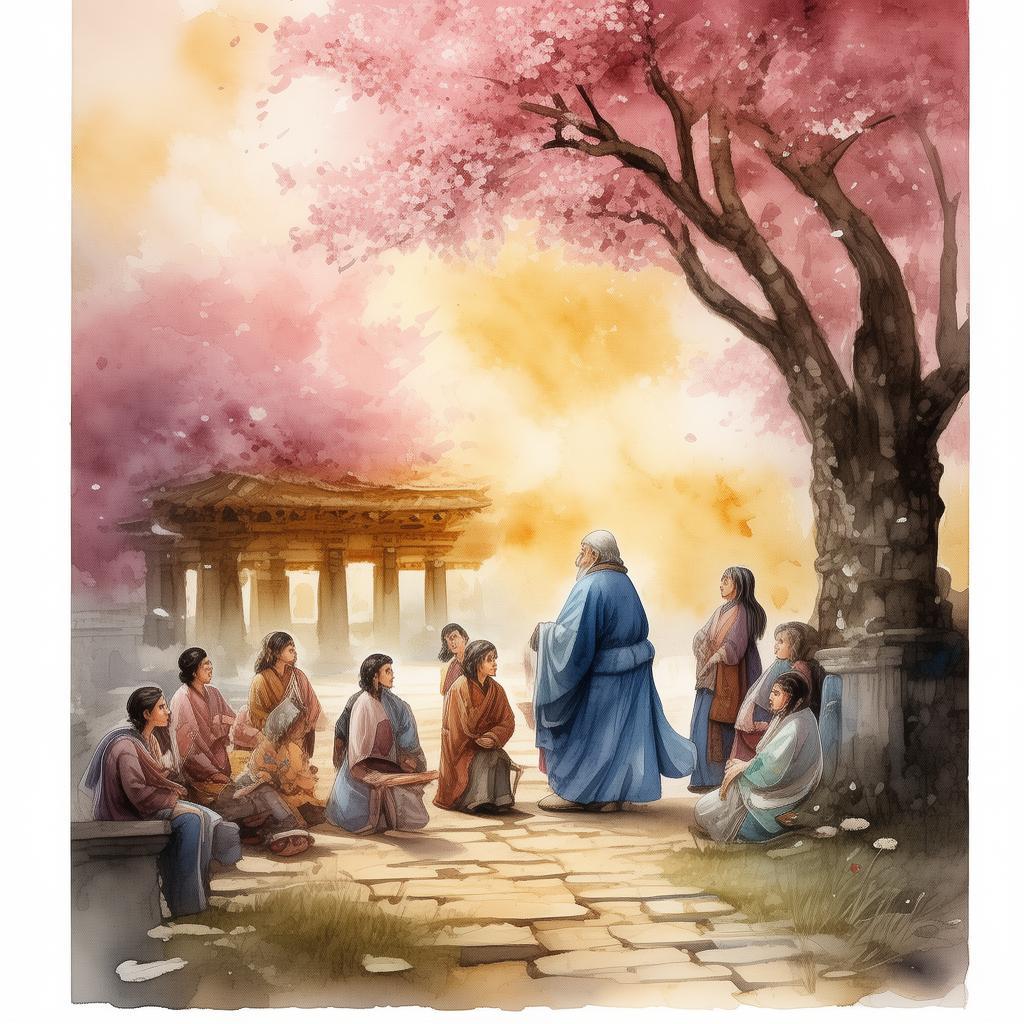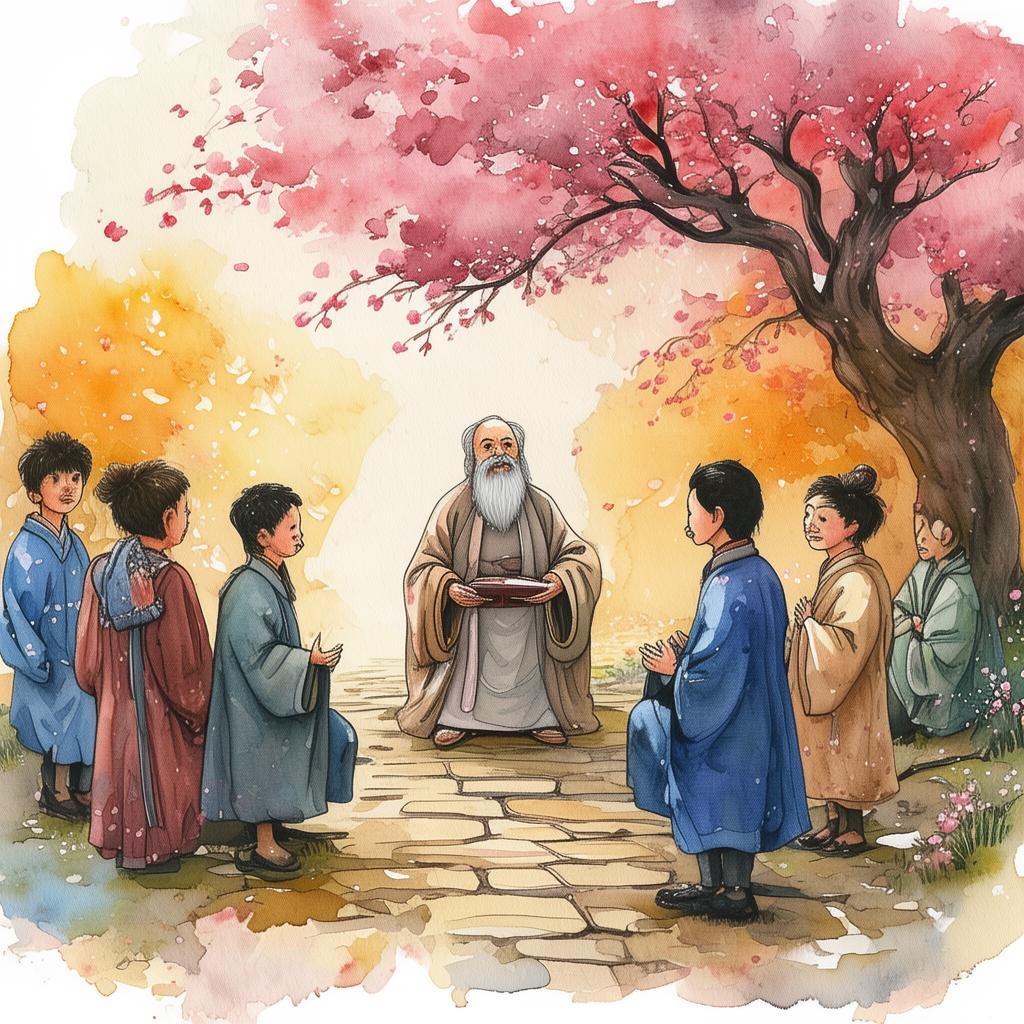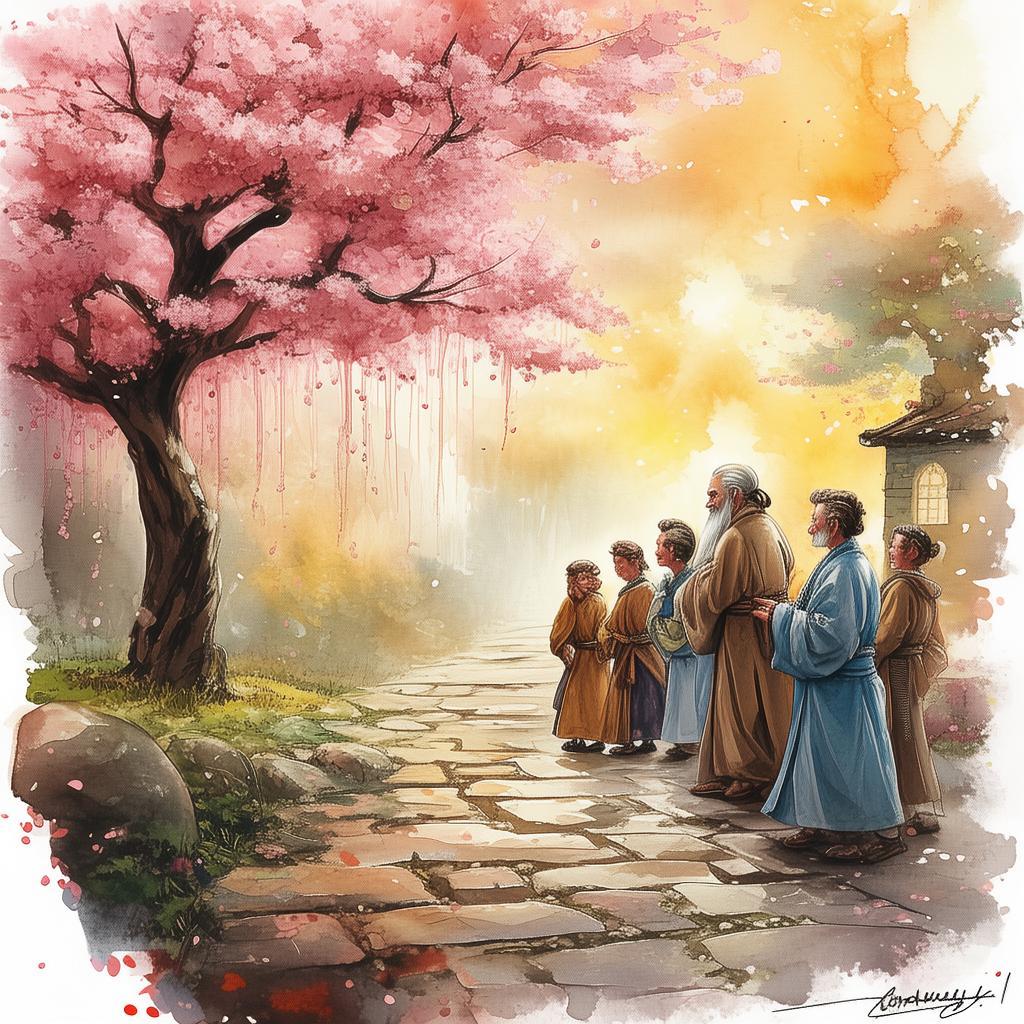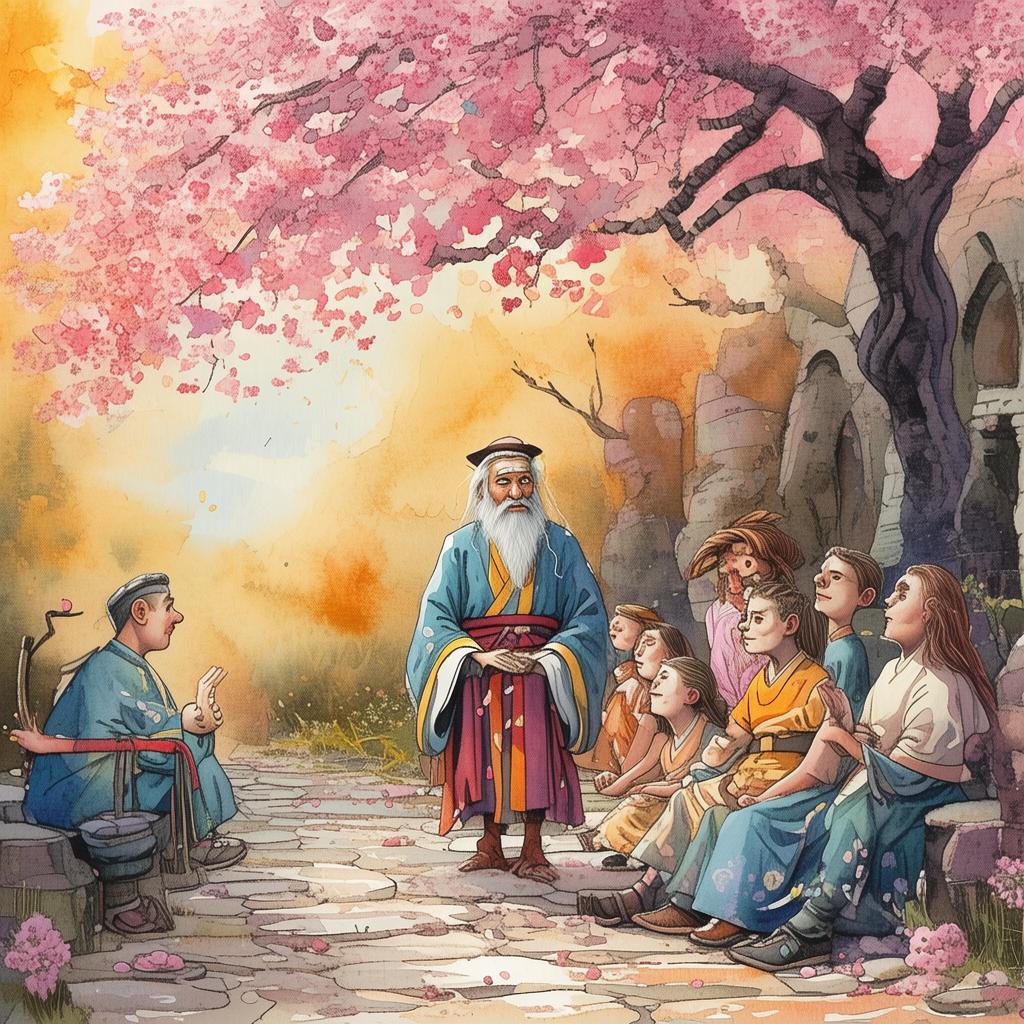Dragon's Den Dilemma: The Quest for Virtue
In the heart of a bustling city, where dreams and reality danced together, lived a young man named Ming. Ming was a visionary, with a mind brimming with ideas and a heart eager to make his mark on the world. He was on the cusp of launching his own company, a venture that promised to revolutionize the tech industry. His path was lined with the promise of wealth, power, and recognition.
However, Ming was no ordinary entrepreneur. He had been inspired by a profound philosophical reflection, "The Straight Path to the Dragon's Den," which taught him that true success was not measured by wealth or status, but by virtue and the pursuit of a higher purpose.
As the day of his product launch approached, Ming found himself at a crossroads. His team, led by his trusted friend and co-founder, Xiao, had discovered a groundbreaking technology that could potentially disrupt the market. But there was a catch; the technology came with a cost that would require Ming to compromise his ethical principles.
Xiao approached Ming with the proposition. "Ming, this is our chance to take over the market. We just need to tweak the software a bit to make it more user-friendly. No one will ever know." The temptation was great, and for a moment, Ming wavered. He thought of the potential success, the wealth, the respect he would gain.
But then he remembered the philosophical reflection that had guided him thus far. "Virtue is not the absence of vice," the reflection had said, "but the practice of what is right even when no one is watching." Ming knew he had to choose virtue over temporary gain.
He turned to Xiao with a resolute expression. "No, Xiao. We can't do this. It's not worth the compromise. Our technology must serve humanity, not harm it."
Xiao, taken aback by Ming's decision, argued passionately. "But Ming, the world is competitive. We can't afford to be moralistic. We need to think about our shareholders and investors. We need to succeed!"
Ming's eyes narrowed. "Success is not just about profit margins, Xiao. It's about making a positive impact on the world. If we sell out now, what's the point of all our work?"
As the argument escalated, Ming realized that he was facing a more profound conflict than he had anticipated. It was not just a battle over business strategy, but a battle of principles, a struggle between short-term gain and long-term virtue.
That night, as he lay in bed, Ming could not shake off the image of the dragon that had appeared in the philosophical reflection. The dragon, a symbol of wisdom and power, had warned him that the path to success was fraught with temptation. "He who seeks wealth above virtue will find the dragon's den," the reflection had ominously stated.
The next morning, Ming summoned Xiao and the team to a meeting. "We need to make a decision. We can take the easy path and tweak the software, or we can stick to our principles and make a real difference. What do you think?"
The room fell silent as the team weighed their options. Ming's decision was clear; he was choosing the path of virtue, even if it meant sacrificing immediate success.
As the days passed, Ming's company faced criticism and skepticism from the industry. Investors pulled out, and media reports painted them as naive idealists. The team was disheartened, and Ming was under immense pressure to backtrack.
But Ming stood firm. He believed in the strength of his vision, and he knew that true success would not come from compromising his values. He continued to work on their technology, refining it with a focus on ethical standards and user satisfaction.
Finally, the day of the launch arrived. Ming and his team unveiled their product to a world that was initially skeptical but gradually won over by the quality and integrity of their creation. The company began to gain traction, and word of their virtuous approach spread like wildfire.
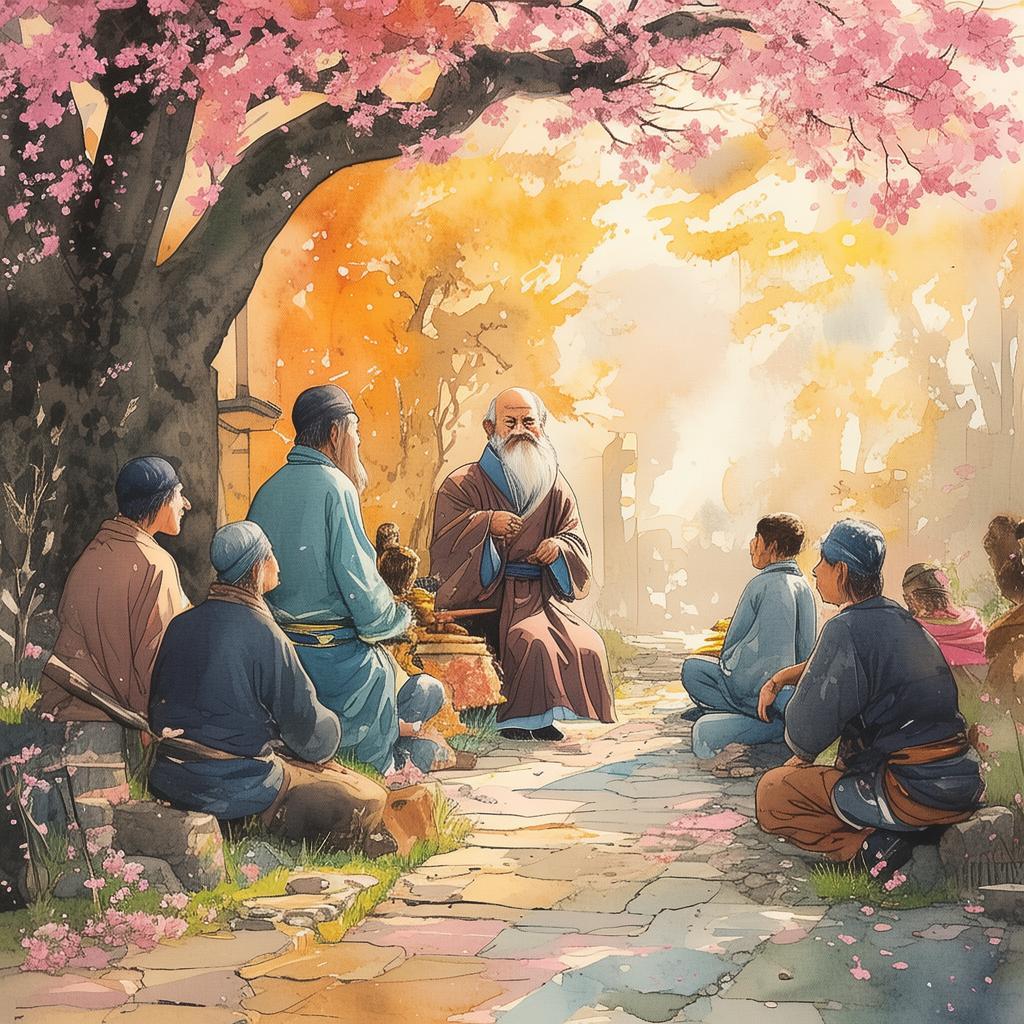
It was during this time that Ming had another encounter with the dragon, but this time, the dragon was different. Instead of a symbol of warning, the dragon now represented approval and encouragement. "You have chosen the path of virtue," the dragon said. "You have earned my respect."
Ming realized that the dragon's den was not a place of punishment, but a test of character. He had passed the test, and his success was now rooted in the values that had guided him from the beginning.
The story of Ming and his company became a legend, inspiring others to pursue success with virtue. And so, Ming's path to the Dragon's Den was not just a story of business triumph, but a testament to the enduring power of moral integrity in the face of temptation.
✨ Original Statement ✨
All articles published on this website (including but not limited to text, images, videos, and other content) are original or authorized for reposting and are protected by relevant laws. Without the explicit written permission of this website, no individual or organization may copy, modify, repost, or use the content for commercial purposes.
If you need to quote or cooperate, please contact this site for authorization. We reserve the right to pursue legal responsibility for any unauthorized use.
Hereby declared.
